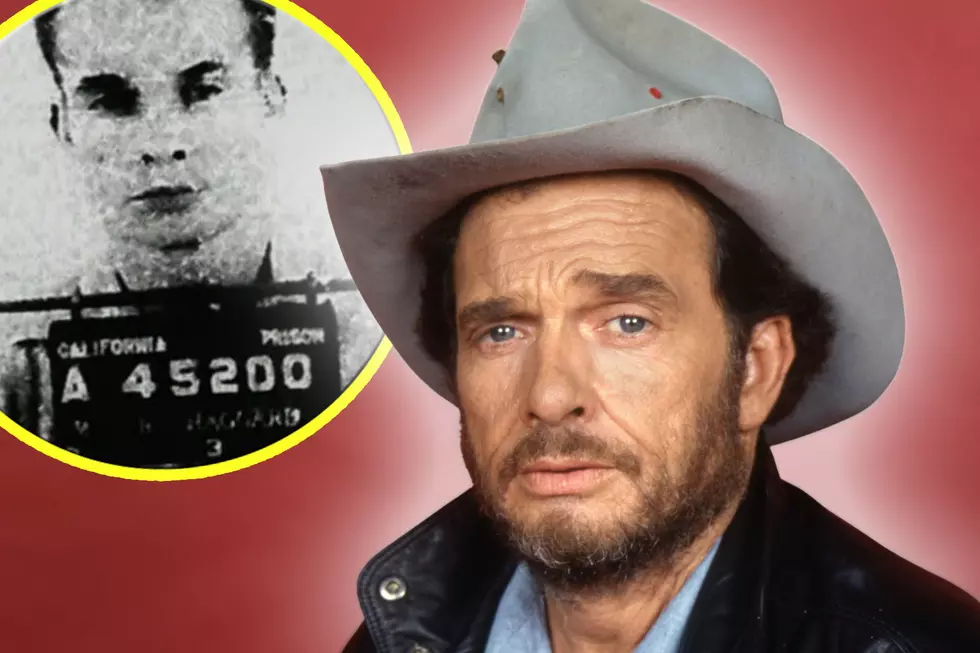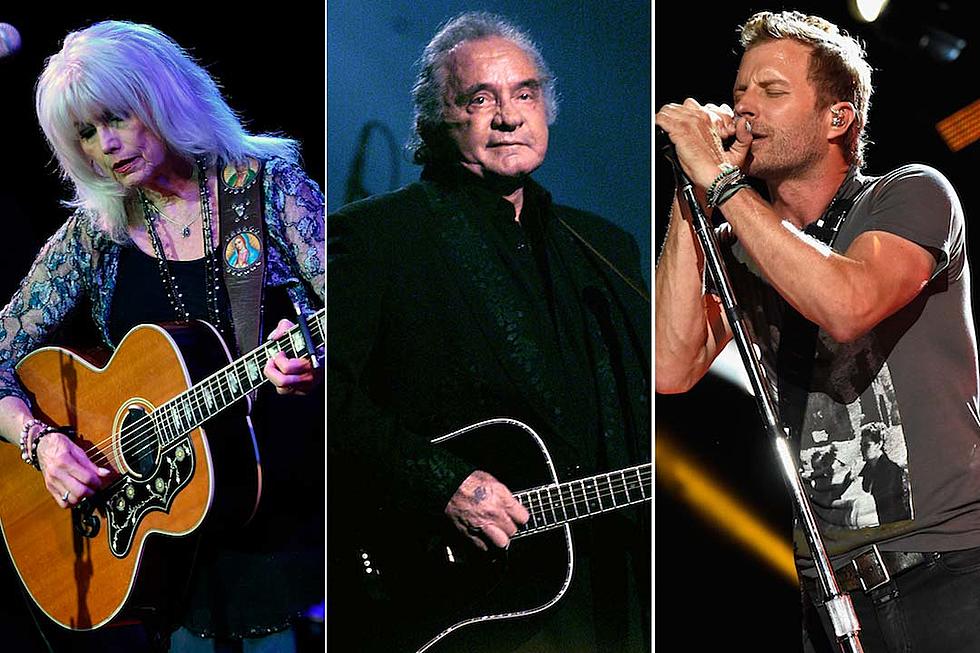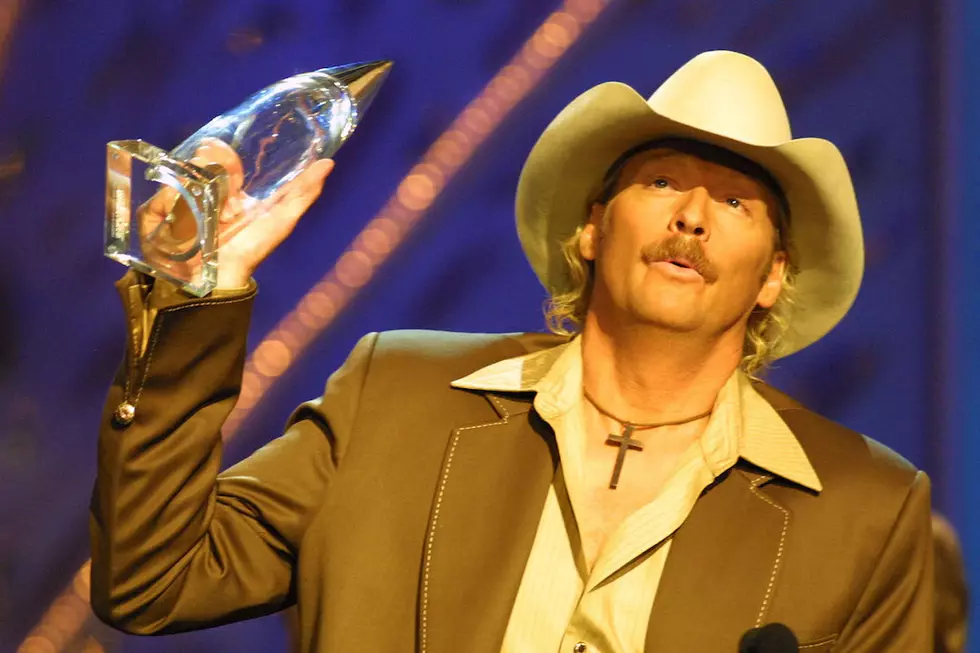
Hank Cochran Documentary Spotlights Songwriter’s Legacy
Hank Cochran was one of the most prolific and successful songwriters to call Nashville home. The man who penned "Make the World Go Away," "The Chair," "I Fall to Pieces" and "Don't Touch Me" was celebrated Wednesday night (April 25), with the premiere of "Hank Cochran: Livin' For a Song" at the Nashville Film Festival. The documentary includes the last interviews with the Nashville Songwriters Hall of Fame member who died in 2010 at age 74.
Lee Ann Womack, Mark Chesnutt, Jeff Bates, Mandy Barnett and songwriter Dean Dillon walked the red carpet for the event, as did Hank's wife, Suzi.
"I'm not very good at this," Suzi cautioned as she stopped to chat with The Boot. "All I did was collect letters and papers and pictures to help them put things together for the film. His first wife, who he was married to twice, gave me some of his old letters. One was talking about being somewhere with [early rock 'n' roll legend] Eddie Cochran when they were together as the Cochran Brothers."
The film details Hank's hardscrabble early life growing up in Mississippi, and the musical partnership he shared with Eddie Cochran (no relation) before making his way to Nashville and pursuing songwriting and recording in his own right.
Suzi, who says her favorite Hank song is "Don't You Ever Get Tired of Hurting Me," admits of the film that, "I couldn't watch for a long time. Then I finally got to where I could, but the first two times it was hard for me. Then I realized what a gift of life it was for Hank."
Lee Ann Womack points out that everyone knows what a great songwriter Hank was but, "Sometimes we don't realize that he loved the business. He loved being around it; being around new artists and new writers and his friends from way back when. He was a publisher, a song plugger, a songwriter and an artist, so he encompassed everything that was great about Nashville."
Growing up in Texas, Lee Ann heard a lot of Hank's songs on the radio. Once she started coming to Nashville, looking for songs to record, she got to meet him and be a part of that circle of writers.
"It was so wonderful that Hank was there during what I consider the glory days. I would get to hear stories straight from the horse's mouth. I would hear about Willie Nelson and all the things they did and all about how he and Dean Dillon wrote those great songs. I was like a kid in a candy store getting to hear Hank's old stories."
Jeff Bates, who was the narrator on the film, told The Boot, "Here's what intrigued me about Hank. He had the ability to walk in both worlds; the world of the common everyday peple like us, and the world of the songwriter and the famous people we all look up to. He could write a song and say how we feel in that song."
Jeannie Seely and Hank met in California and he was so impressed with her that he encouraged her to move to Nashville. Once Jeannie moved to Music City, he began pitching her to record labels for a deal. She recalls that Fred Foster at Monument Records told Hank that he would put out a record on her if they could find the right song. Hank wrote "Don't Touch Me" just for her.
"There were so many artists who heard it that wanted it, he could have given it away but he didn't," Jeannie said. "Buck Owens wanted it but Hank told him, 'No I wrote it with Jeannie in mind and I promised her a song and this is it'."
Jeannie, who later married Hank, went on to say, "Hank was one of the writers who laid the groundwork for Music City, for writing songs that encompassed any genre of music. When you think of his songs, they could be written today. 'Make the World Go Away' is such a classic as was 'Don't Touch Me.' Anybody could identify with the. He wrote simple melodies but the melodies could be performed any way you wanted to do it ... you could put fiddle and steel or an acre of violins. It didn't matter. Hank's songs would fit."
Mandy Barnett sings "I Fall To Pieces" in the film, which she notes is special to her because of her connection to the "Always Patsy Cline" musical. "Hank wrote many wonderful songs. I would consider him to be a singer's best friend, or a song's best friend. His contribution in music is undeniable."
Dean Dillon was six or seven years old when he first heard "Make the World Go Away" and, in spite of his age, he recognized the magic of a song. "It bowled me over even though I was so young," the songwriter says. "Then as I got older, and the more in tune I became with, the more I realized, 'Damn, why wasn't I there, too, when he wrote that one?'"
Dean calls Hank a "cornerstone of country music," and continues: "There have been few to have done for the songwriting world what Hank did for his generation. Those names are few and far between. I am fortunate enough to be a small part of what he accomplished in his lifetime."
For a young writer in town, meeting one of their heroes can be intimidating but Dean says Hank never wanted to come off as an intimidating person. "I think his friendliness is what drew me to him and kept me writing with him for all those years. We reached the point where we were like father and son. It was some great times, some great days and great nights. Knowing and being around Hank, and getting to write with him, is a huge part of who I am."
Once Hank arrived in Nashville, he hooked up with the Pamper Music publishing company, working with fellow writers (and future legends) Willie Nelson, Harlan Howard and Roger Miller. In addition to his writing, he became a valuable song plugger and mentor to many of the new people who came to Nashville through the years. He was a wealth of information about writing and the business and almost always took time to talk to the newcomers who sought him out.
The two-hour film, directed by Wes Pryor and written by Greg Welsch, also features stories about the many parties Hank hosted aboard his boat, The Legend, and the people who crossed his path through the years. Others interviewed in the film include Jamey Johnson, Merle Haggard, Brad Paisley (pictured above with Hank), Elvis Costello, Hank's ex-wife Jeannie Seely, and his three sons and stepdaughter. Several Hank songs are performed throughout the film in their entirety.
More From TheBoot









